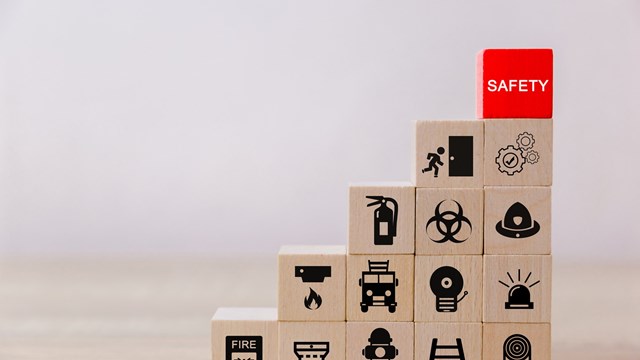
While everyone at 24 Fifth Avenue will miss the doorman, Caspar Orenga, nicknamed Mr. Wonderful, those who will be affected most by his retirement will be the older residents he cared for and attended to with patience and a smile for over 20 years. Like most building doormen, Orenga provided a sense of security and warmth for older residents. He took the time to say more than Good morning or Good evening; he was a friend.
Orenga, and others like him, are just an example of how important it is to make older residents feel safe and at ease. Frequently overlooked are the needs of aging tenants who require systems and staff to provide them with the care and attention they desire: Someone to knock on the door and see if they're okay; a younger resident to do some grocery shopping; or even creating a network of other senior residents to allow them to help themselves. Often, producing a help system doesn't take too long or cost too much; all that really matters is the involvement put into it.
While doormen like Mr. Wonderful are the first line of defense against crime, they also provide a sense of security for tenants, especially those living alone. When a tenant fails to appear to collect the mail or go out at a usual time, doormen very often will call the tenant's apartment to check. Or alert the superintendent. But what if your building has no doorman? Tenants need to become more aware and responsive to their neighbors' needs and conditions, advises Loretta Ponticello, who heads the Senior Committee of City and Suburban Houses complex in Yorkville, where each floor has created a buddy system for this purpose.
The problem is, only a few buildings seem to have a set policy of checking on or assisting those most likely to be in trouble or need, says Mary Ann Rothman, director of the Council of New York Cooperatives. Rothman explains that this is because setting up systems to address the needs of vulnerable tenants is still not a priority with most boards who are often overwhelmed with solving other problems the building is facing. The workshop offered at the Council's 1994 conference, Solving People ProblemsMeeting Building Residents' Special Needs, attracted only ten people.Ruth Radow, an attorney and chair of the New York State Housing Committee on Elder Law, feels boards would change their minds if they realized how much could be saved if elderly residents were taken care of. What most boards don't realize is that ade-quate atten-tion to older residents who have special needs can help prevent dam-age to the building, says Radow. For example, when a stove burner, oven, faucet or other appliance is accidentally left on, serious damage can be the result. Paying attention to these special needs is important, not only for humanitarian reasons, but for the safety and welfare of the entire building, Radow explains.
Some larger complexes send out surveys, requesting residents to tell them how the building staff and management can be of help. While many respond, according to Ruth Lerner, a board member at The Waterside Apartment Complex, those who most need help are sometimes too private or afraid of being institutionalized to answer candidly.
Even the most mundane tasks, like using the ffb building's stairs, can become torturous chores for the aged. An easy addition, such as handrails on the stairwells, can ease any fears the older resident might have. Because of these feelings, maintaining an elderly-friendly (which means safe) public environment is essential for older residents.
Deborah Hanna, a registered nurse who led a Council workshop on elderly concerns, suggests specific ways the management, staff and other tenants could help: Wall-to-wall lobby carpeting, instead of area rugs; portable ramps; permanent handrails for stairs; highlighting the outer edge of steps for greater visibility. These are all additions that can work toward making the elderly feel safer in their buildings, she feels. Hanna sup-ports using newsletters as a way of making the building more neigh-borly and alerting other resi-dents about tenants who might have special needs.
Absolutely essential, say those activ-ely and sometimes professionally involved in preventing or reducing residential people problems, is a confidential directory of every tenants' Vital Statisticsthose needed in emergencies; telephone numbers at work, names and numbers of next of kin, attorneys and doctors. Information about an existing health problem or allergy to medication is invaluable to give to Emergency Medical Service personnel who may be summoned.
The Manhattan Plaza apartment house has what is known as a model program for helping their AIDS-afflicted tenants, as well as frail or ailing elders who remain in their homesa program which some apartment houses have adapted for their own particular needs.
Betty Wallerstein, a trained social worker and president of the highly effective 79th Street Neighborhood Association, strongly believes that helping begins at home, in one's apartment house. She advocates training the building's youngsters to be sensitive to the needs of older people, and when possible, to lend a hand. Younger residents can run errands when they have time, like grocery shopping or buying medicine.
But it shouldn't end there. The aged need to be made welcomed and feel they're being cared about and cared for. We must make a fuss over the elder people the way we do over the children. Celebrate their birthdays and visit, visit, visit, says Wallerstein. Other ways to help the aged include creating a buddy system among the elderly. Barbara Dunne, who suffered a hip injury this past year, is trying to network some of the retired people in her West Side apartment house to more effectively help one another when the need arises.
The possibilities for in-house help are endless. Jasmine Aloni, a social worker at the Burden Center for the Aging, says that many, mostly single older people, fall through the cracks, even in luxury buildings. Loneliness and isolation can cause failing physical, emotional and mental health, she reminds, along with resulting poor nutrition and neglect of other health habits, and failure to clean their apartments and pay bills. Sometimes, outside intervention can reverse, as well as reduce, these symptoms.
Religious institutions, many of which have social workers and senior groups and programs, are also an invaluable resource. After all, love thy neighbor is central to the creeds of all religions.
A list of services which may be needed to help an elderly person live more safely and healthfully at home is available from local agencies such as the Burden Center for the Aging (212) 289-0601 and the City's Department of Aging (212) 442-1000. For Protective Services for Adults, (212) 971-2627, to be called in, however, says Radow, the condition must be extremely critical.






Leave a Comment